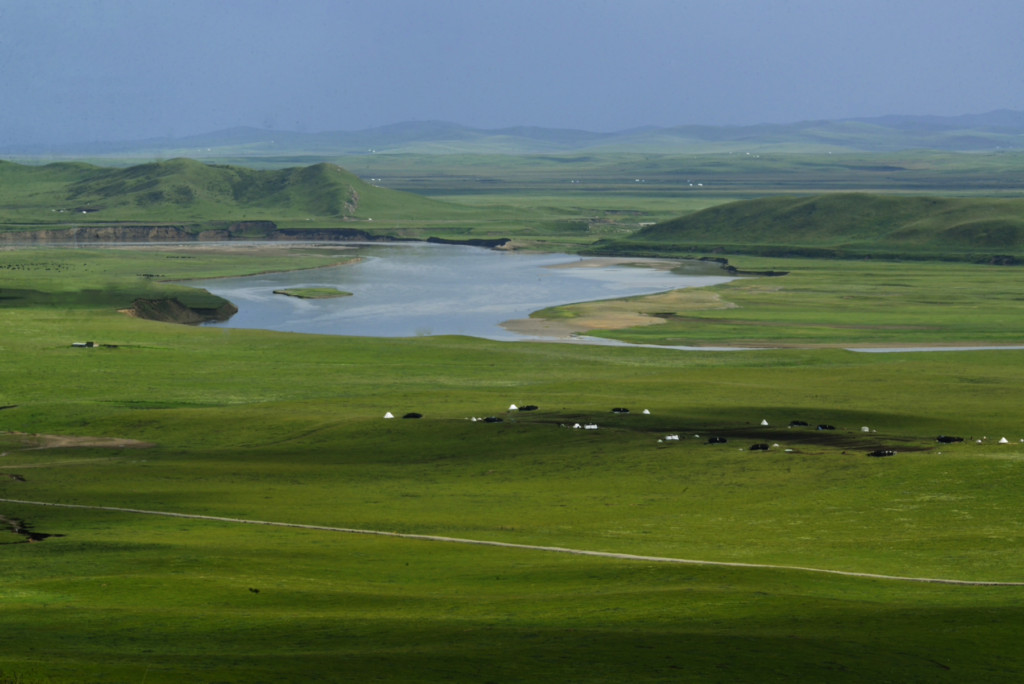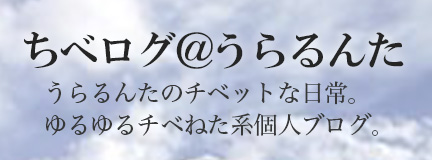
チベットNOW@ルンタ
ダラムサラ通信 by 中原一博
2008年11月14日
法王の特別メッセージ、中国側記者会見、続ネレンカン
まず、以下に今日午後5時ごろ発表された、法王のメッセージを英文のまま載せます。(日本語訳は明日にでも出るであろう日本代表事務所の訳をご覧ください)
「内外のチベット人に対する特別メッセージ」と題されたこのメッセージは、17日から始まる「特別会議」を前に、中国との「会談」等の経緯と会議に臨む心構えなどを説かれています。
http://www.tibet.net/en/index.php?id=530&articletype=flash&rmenuid=morenews
SPECIAL MESSAGE OF HIS HOLINESS THE DALAI LAMA FOR TIBETANS
IN AND OUTSIDE TIBET.
While sending my greetings to all Tibetans in and outside Tibet, there are a few important issues I would like to present to you.
Since I was very young, I realized that the transformation of our governance into a democratic system was of utmost importance for Tibet’s immediate and long-term interest. Therefore, after taking responsibility as the spiritual and political leader of Tibet, I worked hard to establish such a democratic set-up in Tibet. Unfortunately, we were unable to achieve it under the harsh repression of the People’s Republic of China. However, immediately after coming into exile, judicious reforms were introduced in the structure of our governance and a newly-elected parliament was constituted. Despite being in exile, the process of the democratization of the Tibetan community has made good headway. Today, the Tibetan community in exile has completely transformed into a modern democracy in the true sense of the word, having an administration with its own charter and a leadership elected by popular vote. We can be proud at this moment when the Tibetan people themselves are ready and able to take responsibility for Tibet.
The reason I have persisted in encouraging the establishment of a democratic system is based entirely on the need to secure a solid and sustainable future system of governance for Tibet. This is not because I was reluctant or wanted to shirk my responsibility. It is extremely important that we take stock of history and our past experience, as well as learn from the present world situation in order to keep up our struggle. All Tibetans should uphold and strengthen the institution of the Central Tibetan Administration, by means of which we will be able to preserve the Tibetan cultural heritage in exile until the issue of Tibet is resolved.
Since coming into exile, we have exercised the essential functions of a democratic system by inviting our people to express their opinions about important political decisions on the future of Tibet. The current, mutually beneficial Middle-Way Approach was formulated in the early 1970s as a result of much deliberation and discussion with leaders who represented the Tibetan people such as the Speaker of the House. Moreover, I have specifically stated in the Strasbourg Proposal that the Tibetan people will make the final decision.
After the break in contacts with the PRC in 1993, we conducted an opinion poll of the Tibetans in exile and collected suggestions from Tibet wherever possible on the proposed referendum, by which the Tibetan people were to determine the future course of our freedom struggle to their full satisfaction. Based on the outcome of this poll and suggestions from Tibet, our parliament in exile, passed a resolution empowering me to continue to use my discretion on the matter without seeking recourse to a referendum. Therefore, until now we have followed the Middle-Way Approach and eight rounds of talks have taken place since contact with the PRC was restored in 2002. Despite this approach receiving widespread appreciation from the international community, as well as the support of many Chinese intellectuals, there have been no positive signs or changes in Tibet. Indeed, PRC policies towards Tibet and the Tibetans have remained unchanged.
After the sixth round of talks in 2007 with officials of the PRC, there were no plans to hold further talks in the immediate future. But, because of the urgency of the situation in Tibet after the events of March this year, we held informal discussions in the beginning of May, followed by the seventh and eighth rounds of talks in July and at the beginning of November, so as not to leave any stone unturned. Nevertheless, no real progress was made.
In March this year, Tibetans from the whole of Tibet known as Cholka-Sum (U-Tsang, Kham and Amdo), regardless of whether they were young or old, male or female, monastic or lay-people, believers or non-believers, including students, risked their lives by courageously expressing their long-felt dissatisfaction with PRC policies in a peaceful and lawful way. At that time I was hopeful that the PRC government would find a solution based on the reality on the ground. However, on the contrary, the Chinese government has completely ignored and rejected Tibetan feelings and aspirations by brutally cracking down on them, using the accusation that they were ‘splittists’ and ‘reactionaries’ as an excuse. During those testing times, out of profound concern and a deep sense of responsibility, I exercised whatever influence I have with the international community and with China, including writing personally to President Hu Jintao. But my efforts hardly made any difference.
Since everyone was preoccupied with the issue of the Beijing Olympics, it did not seem appropriate to consult the general public at that time. Now, since the time is more appropriate, in accordance with clause 59 of the Charter for Tibetans-in-exile I have on 11th September, requested our elected leadership to convene a Special Meeting soon. It is my hope that participants will be able to gather the opinions of their respective communities and be able to present them on this occasion.
Taking into account the inspiring courage being shown by people all over Tibet this year, the current world situation, and the present intransigent stance of the government of the PRC, all the participants, as Tibetan citizens should discuss in a spirit of equality, cooperation and collective responsibility the best possible future course of action to advance the Tibetan cause. This meeting should take place in an atmosphere of openness, putting aside partisan debate. Rather, it should focus on the aspirations and views of the Tibetan people. I appeal to everyone concerned to work together to contribute as best as they can.
This Special Meeting is being convened with the express purpose of providing a forum to understand the real opinions and views of the Tibetan people through free and frank discussions. It must be clear to all that this special meeting does not have any agenda for reaching a particular predetermined outcome.
The Dalai Lama
14 November 2008
N.B Translated from the Tibetan.
ーーーーーーーーーーーーーーーーーーーーーーーーーーーーーーーー
次に、これも紹介だけですが、You Tube に10日に行われた、今回の会談についての中国側の記者会見が載せられています。
ジャミヤン・ノルブ氏のブログで紹介されていたものです。
この中で中国ははっきりと法王の言われる「中道路線」「高度な自治」を「偽装独立」の試みと捉え、「そんな話に乗ることはあり得ない」と言ってます。
鄧小平の約束も否定しています。
つまり、又もや騙されていたわけです。
中国の「政策」とは相手を騙してなんぼ、というわけです。
この記者会見、タイミングからいっても、今度の会議を前にチベット人を絶望させ、切れさせ、もっと過激な路線を表明してほしくてやったのだ!?という意見もあります。
さあ、どうでしょうか?
ーーーーーーーーーーーーーーーーーーーーーーーーーーーーーーーーー
最後に、ネレンカン(難民一時収容所)に辿り着いた人たちの話をまたすこし。
実は、今日の夕方「日本テレビ」様一行が到着され、ネレンカンをさっそく取材されました。
明後日には中国との会談をされた特使ギャリ・リンポチェが記者会見を開かれます。
これらをまとめて、月曜日あたりに日本で放映されるはずです。
明日にはNHKさんもいらっしゃいます。
来週にはダラムサラ発チベットものが日本でも少なくとも二本は見れるはずです。
以下、アムドから来た僧侶の話です。
22歳の彼はどこで手に入れたのか、かっこいい革ジャンを着ていてどう見ても僧侶には見えないのでした。
(中々ハンサムな彼氏の姿をテレビで見れるかも?)
ーーー
青海湖の北東にある僧院に所属していた。
3月14日の数日後に自分たち僧侶が先導して町でデモを行った、僧侶250人、市民約1000人が参加した大きなデモだった。
自分たちは手製で作ったチベットの国旗を掲げ、パンフレットを配り、スローガンを叫んだ。
「チベットに人権を!」「ダライラマ法王がチベットにお戻りになられますように!」「チベットはチベット人のものだ!」と叫んだ。
その時には誰も逮捕されなかったが、2,3日後から僧院に「愛国教育班」がやっていて、仲間の僧侶25人を連れて行った。
彼らはその後、結局僧院から追い出された。
ラサまでは車と列車を使った。ラサで会った仲間と二人でインドに向かった。
彼は3月14日にラサにいてデモに参加し、たくさんの事を目撃している。
偽僧侶、偽チベット人が暴徒を装ったこと、今も沢山そんなのがいると言っていた。
彼とはデリーで別れた。
ディンリまではだいたい車を使ったが途中検問を迂回するために何日か歩いた。
ディンリから山に向かって荒野を進んだ。夜中歩き昼間は岩陰や雪の穴に隠れて寝た。
ナンパラ峠を超えるまでに三か所、軍の駐屯地があった。
その近くを夜中に見つからないように迂回するときが一番緊張した。
峠でかつてチベット人が殺されたことも知っていたので、特に峠付近は気を付けた。
峠も夜中に通過した。
幸い見つからずにネパール側まで来ることができた。
これからまた僧院に入り仏教をしっかり勉強したい。
田舎では十分な教えを得ることができなかったから。
チベットにいつか、自分たちがデモで叫んだことが実現されることを夢見てる。
ーーー
と話していました。
筆者プロフィール

中原 一博
NAKAHARA Kazuhiro
1952年、広島県呉市生まれ。早稲田大学理工学部建築学科卒業。建築家。大学在学中、インド北部ラダック地方のチベット様式建築を研究したことがきっかけになり、インド・ダラムサラのチベット亡命政府より建築設計を依頼される。1985年よりダラムサラ在住。これまでに手掛けた建築は、亡命政府国際関係省、TCV難民学校ホール(1,500人収容)、チベット伝統工芸センターノルブリンカといった代表作のほか、小中学校、寄宿舎、寺、ストゥーパなど多数。(写真:野田雅也撮影)









